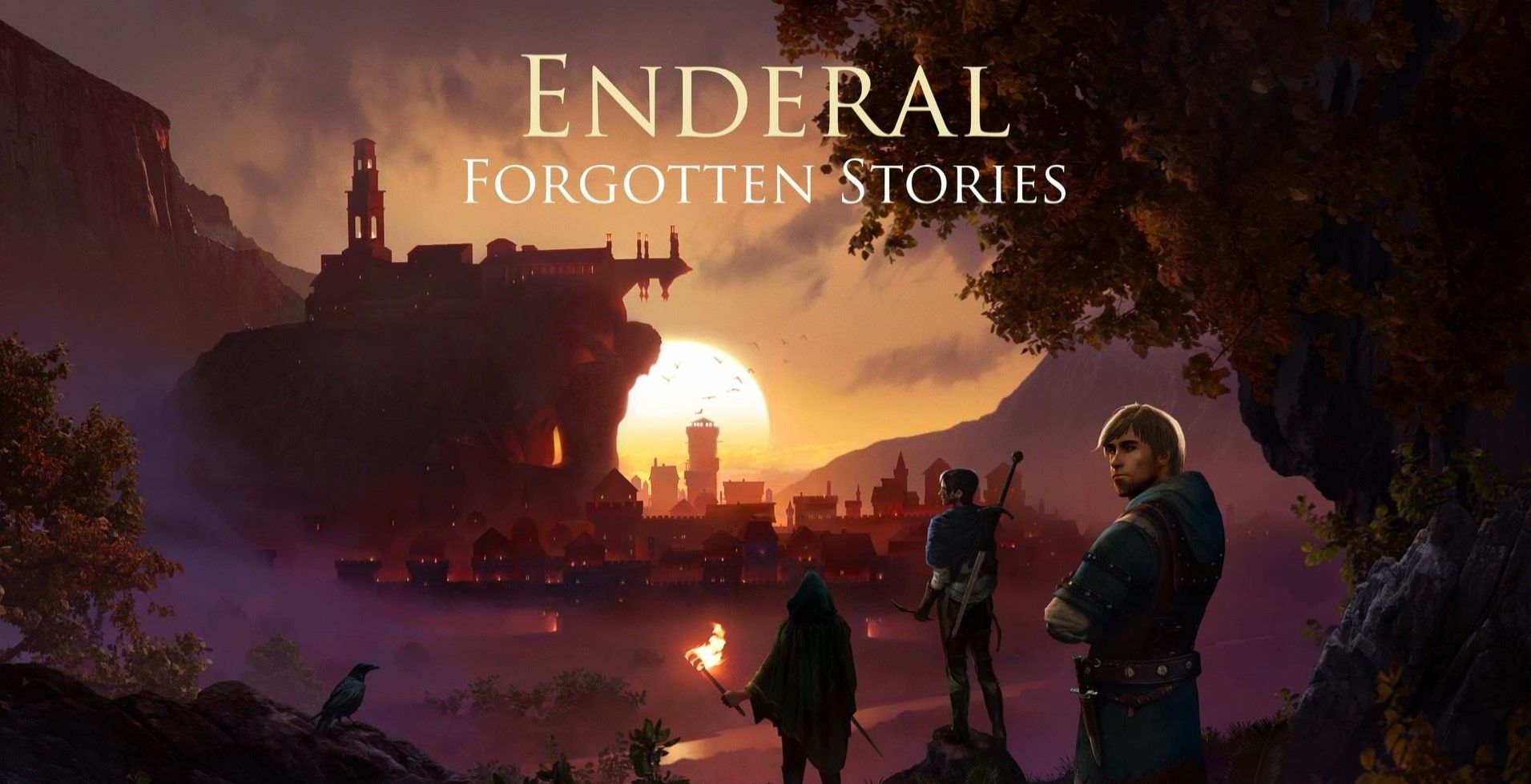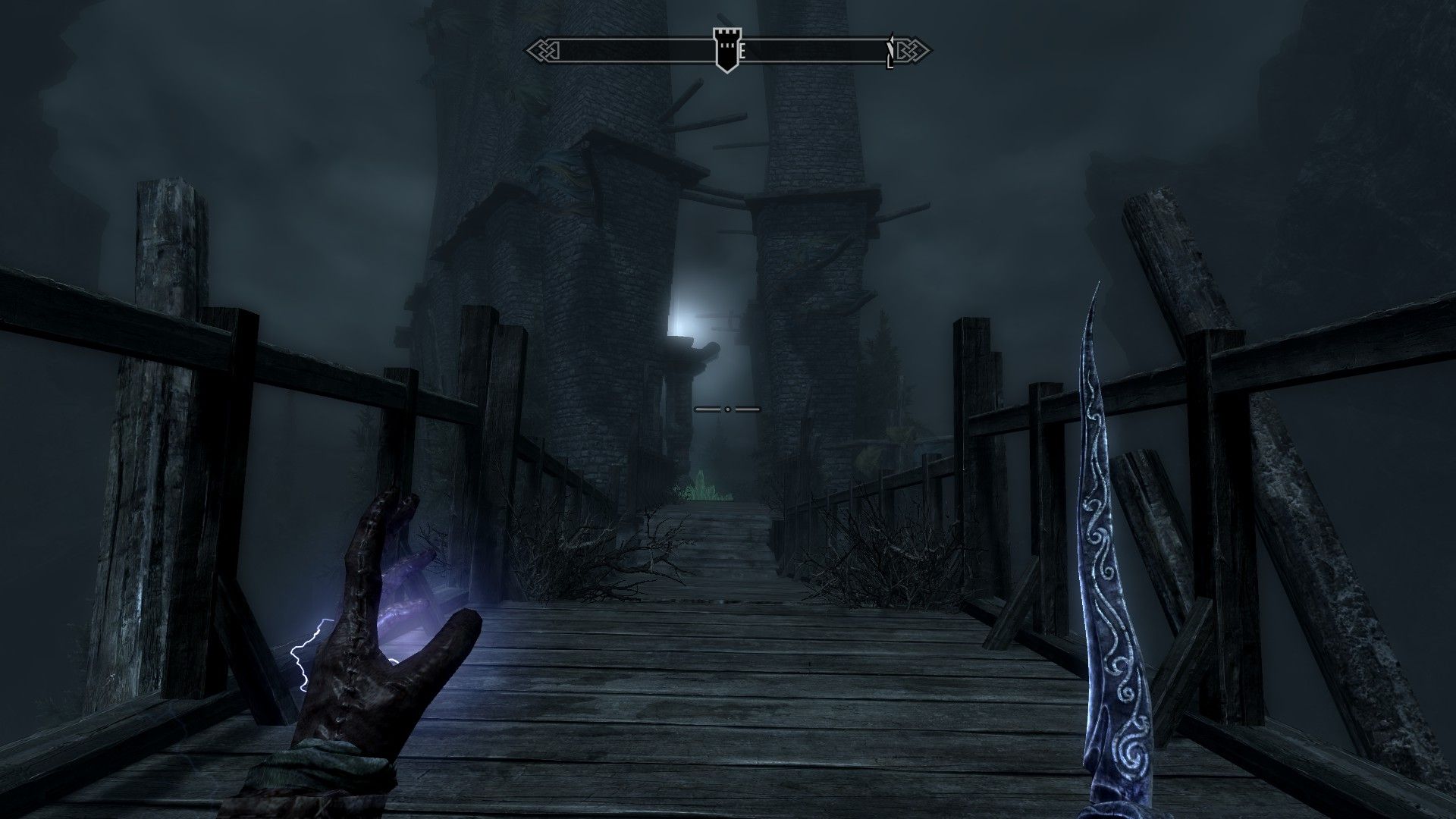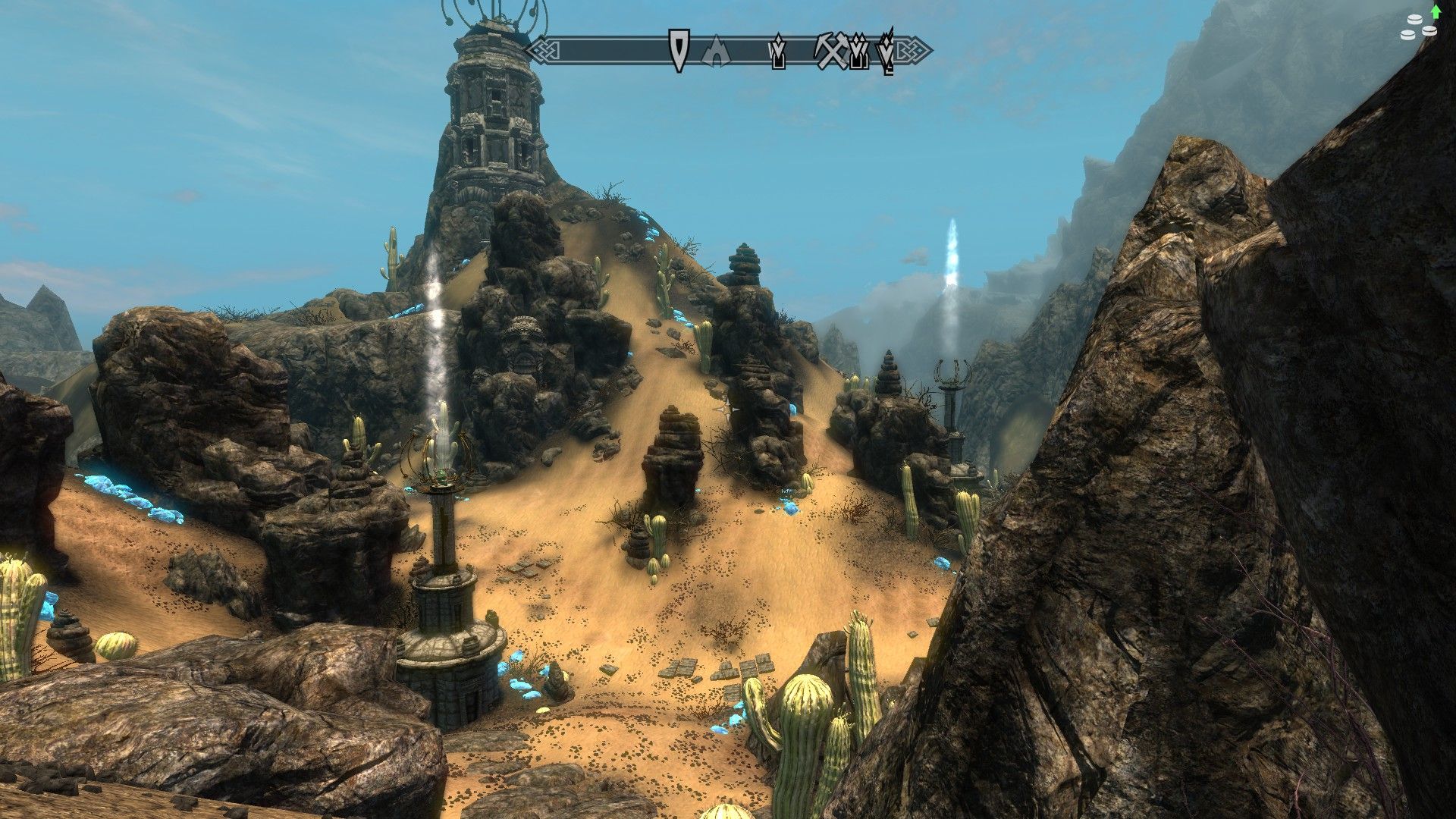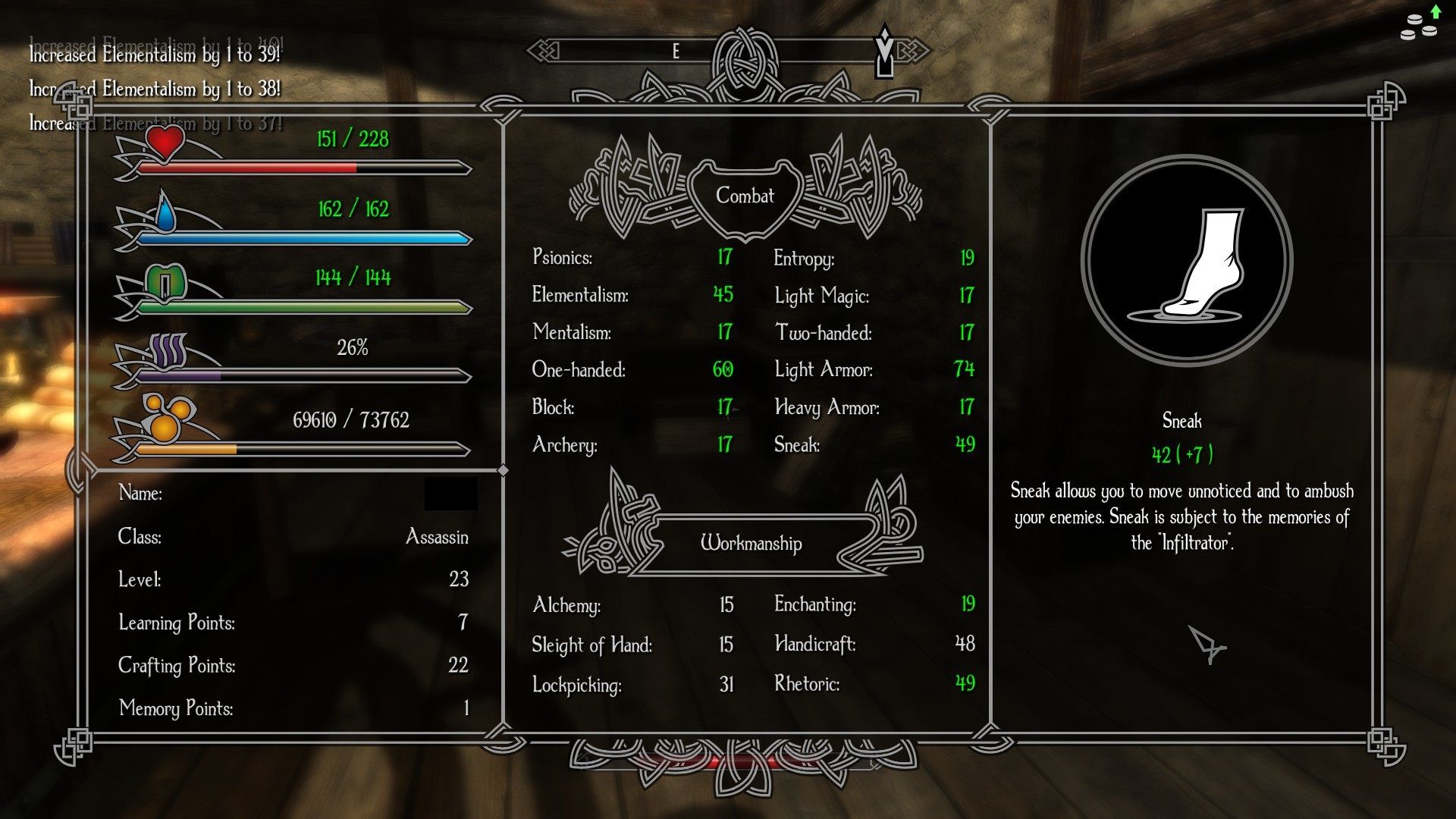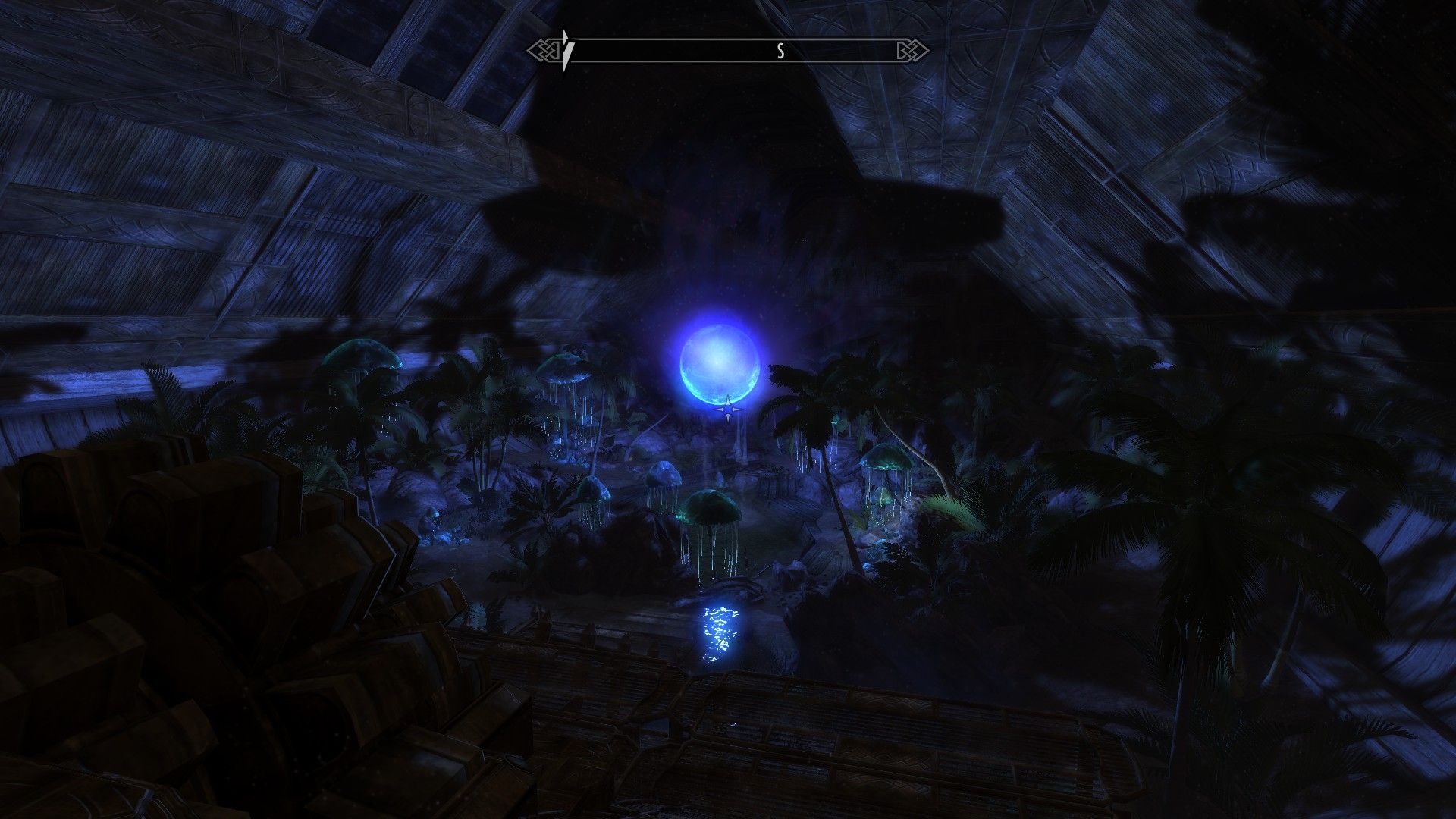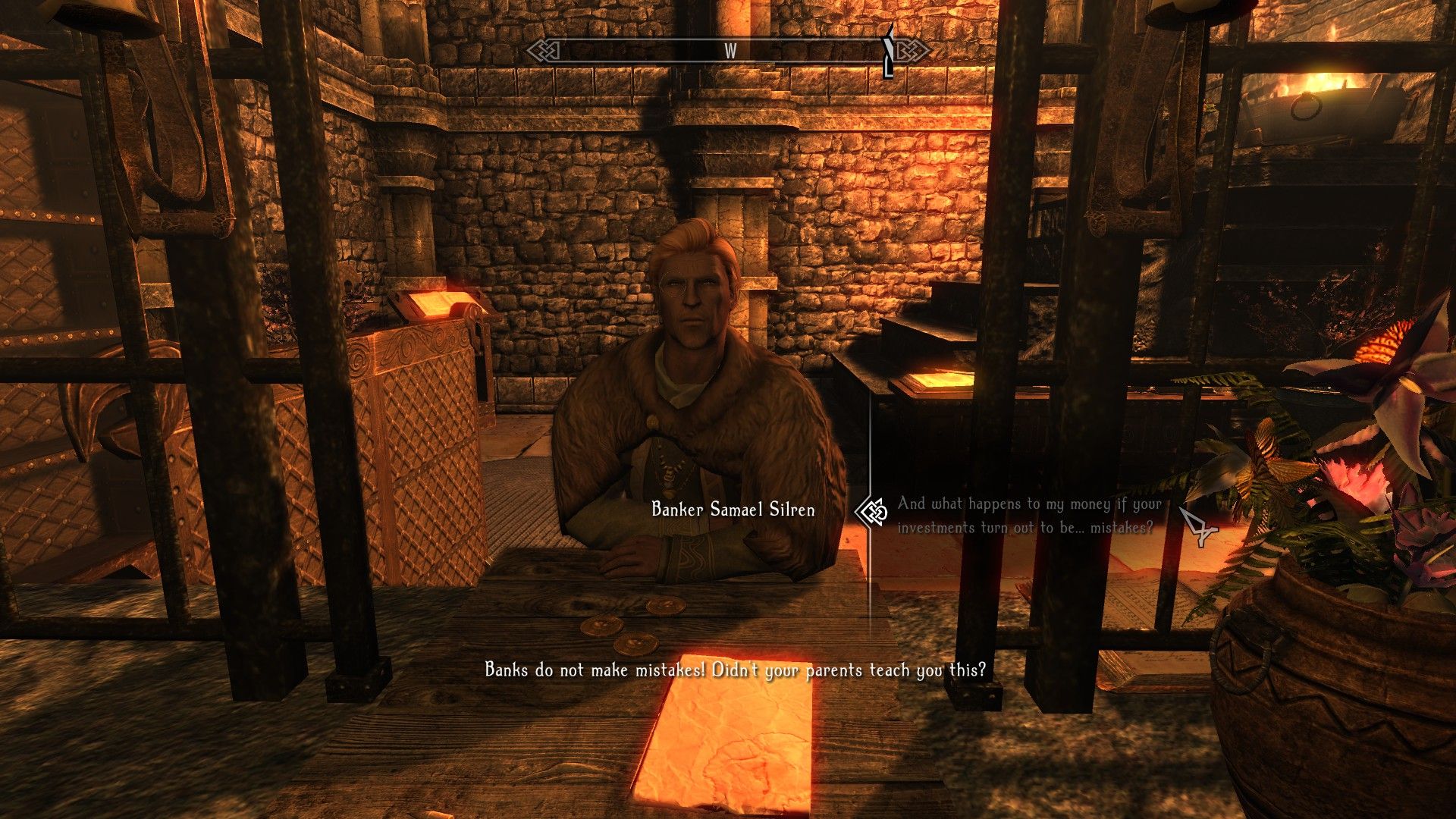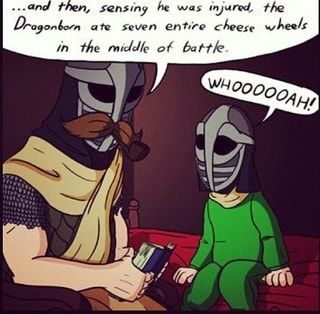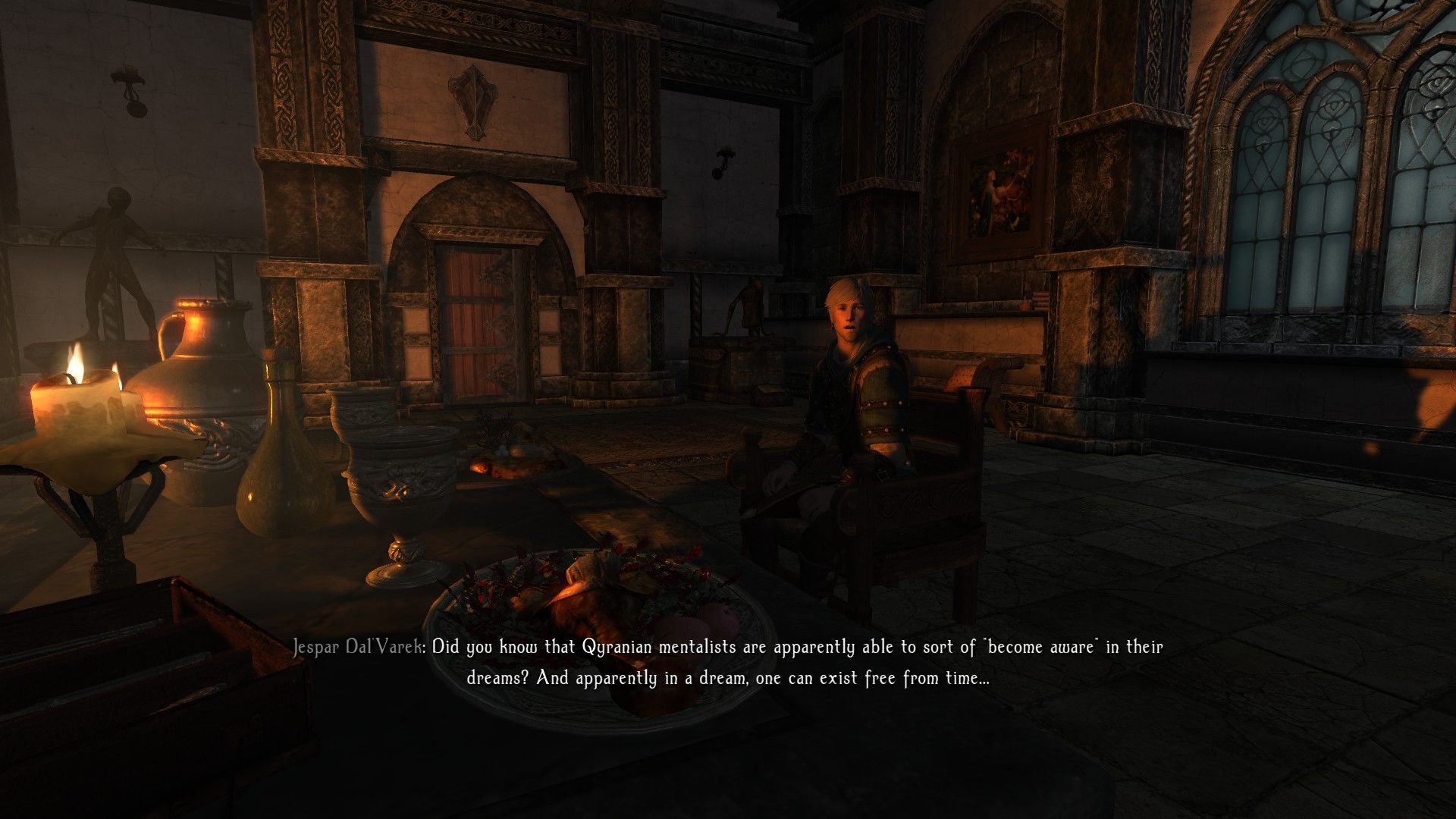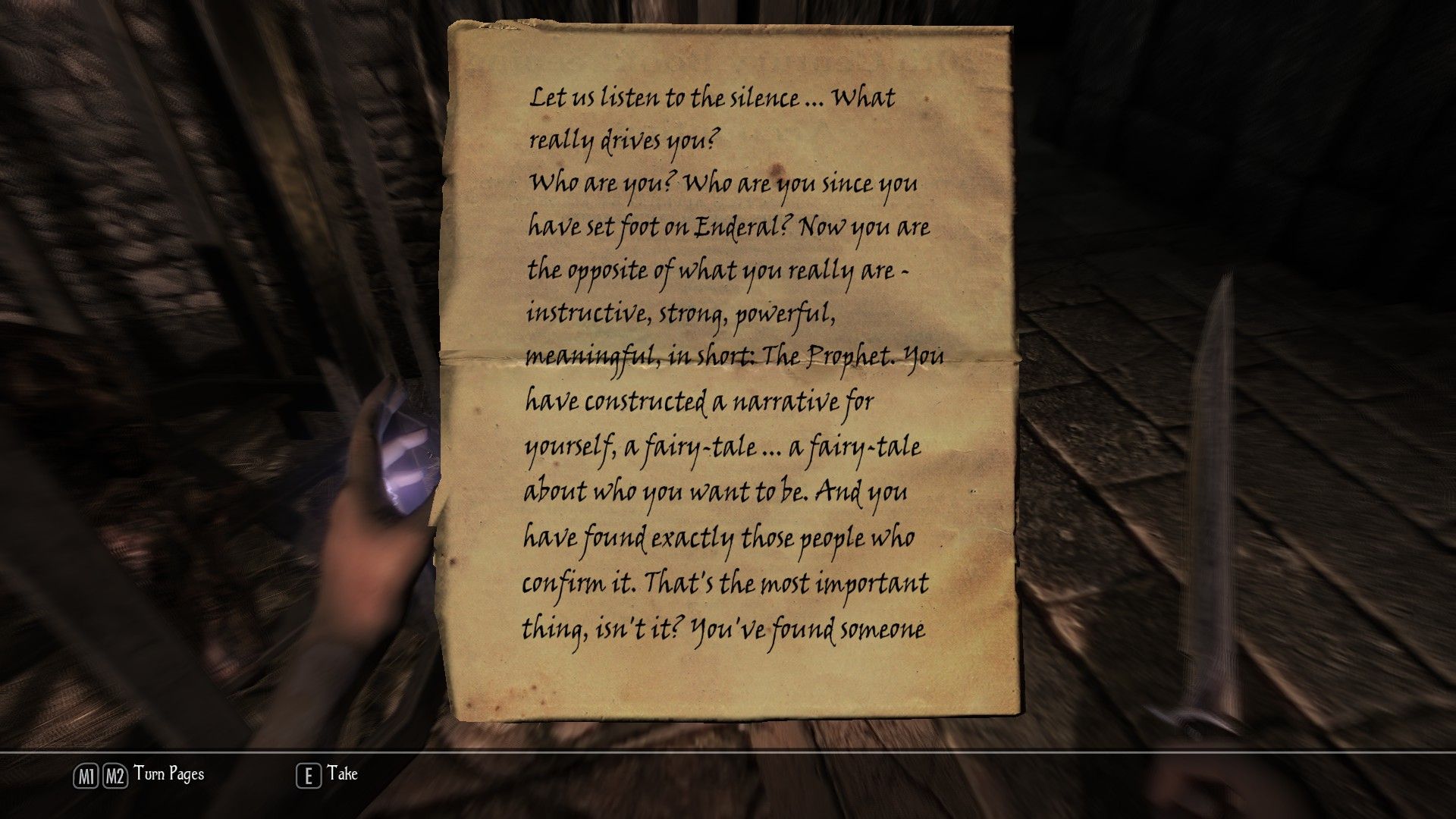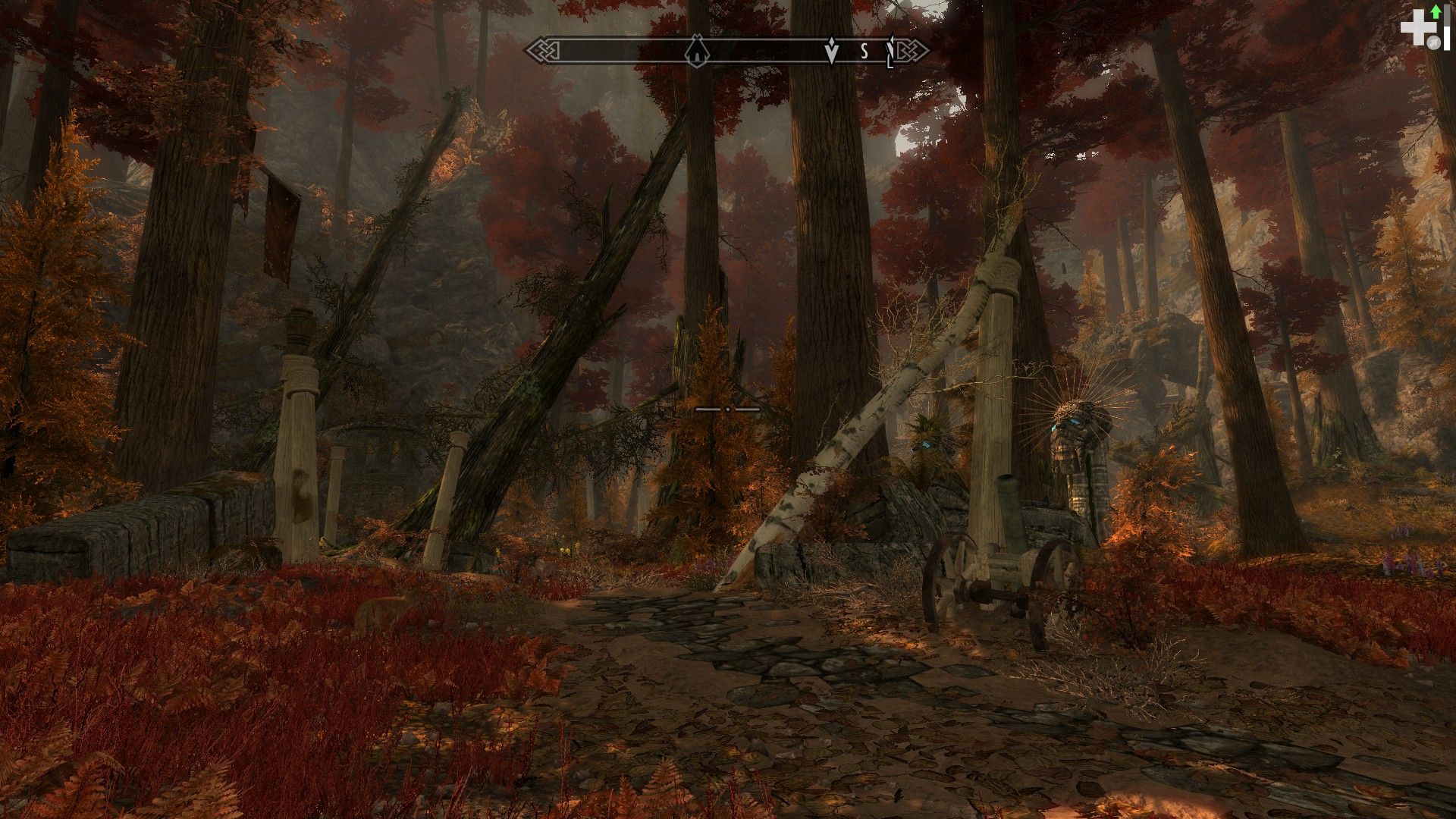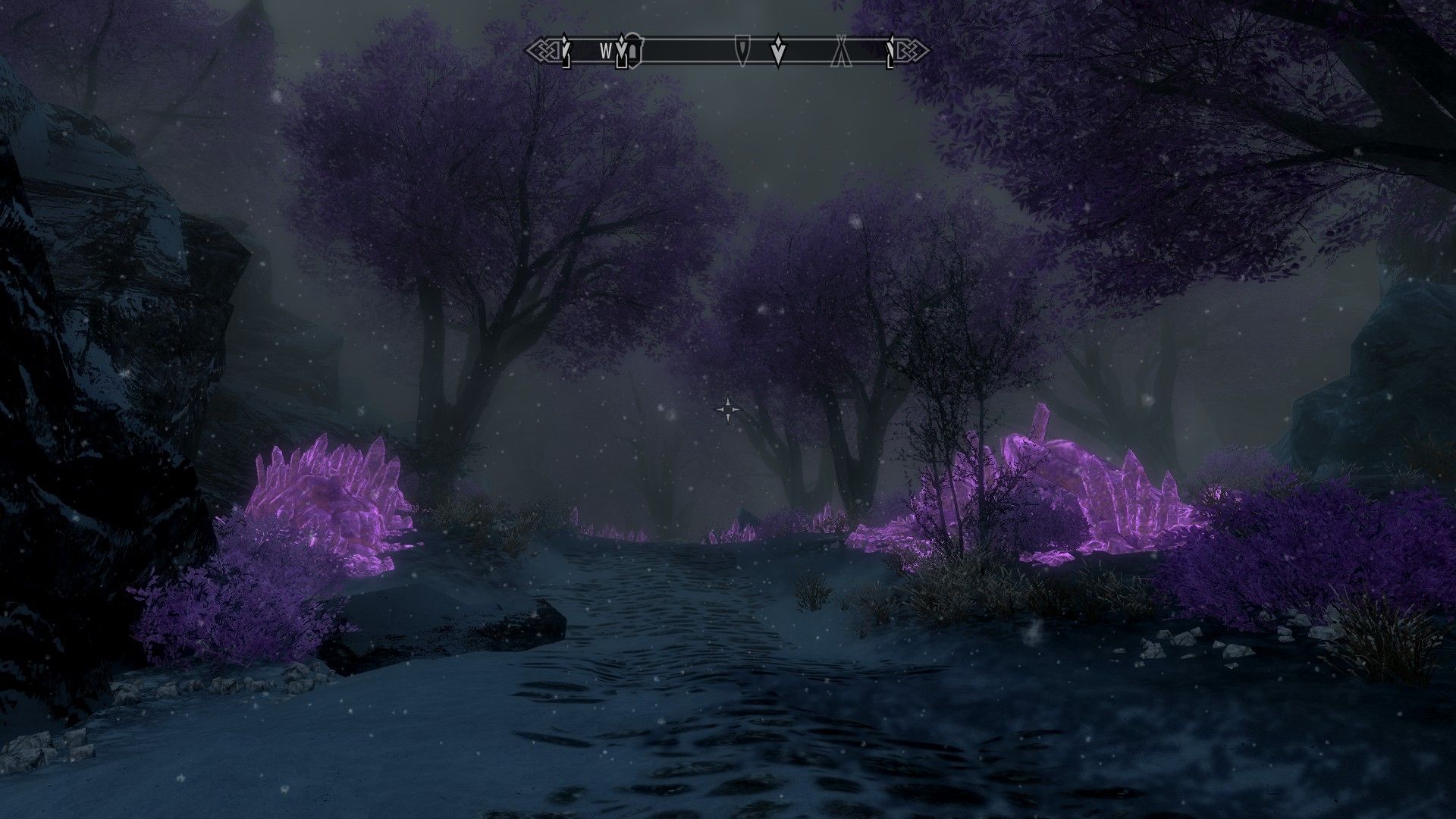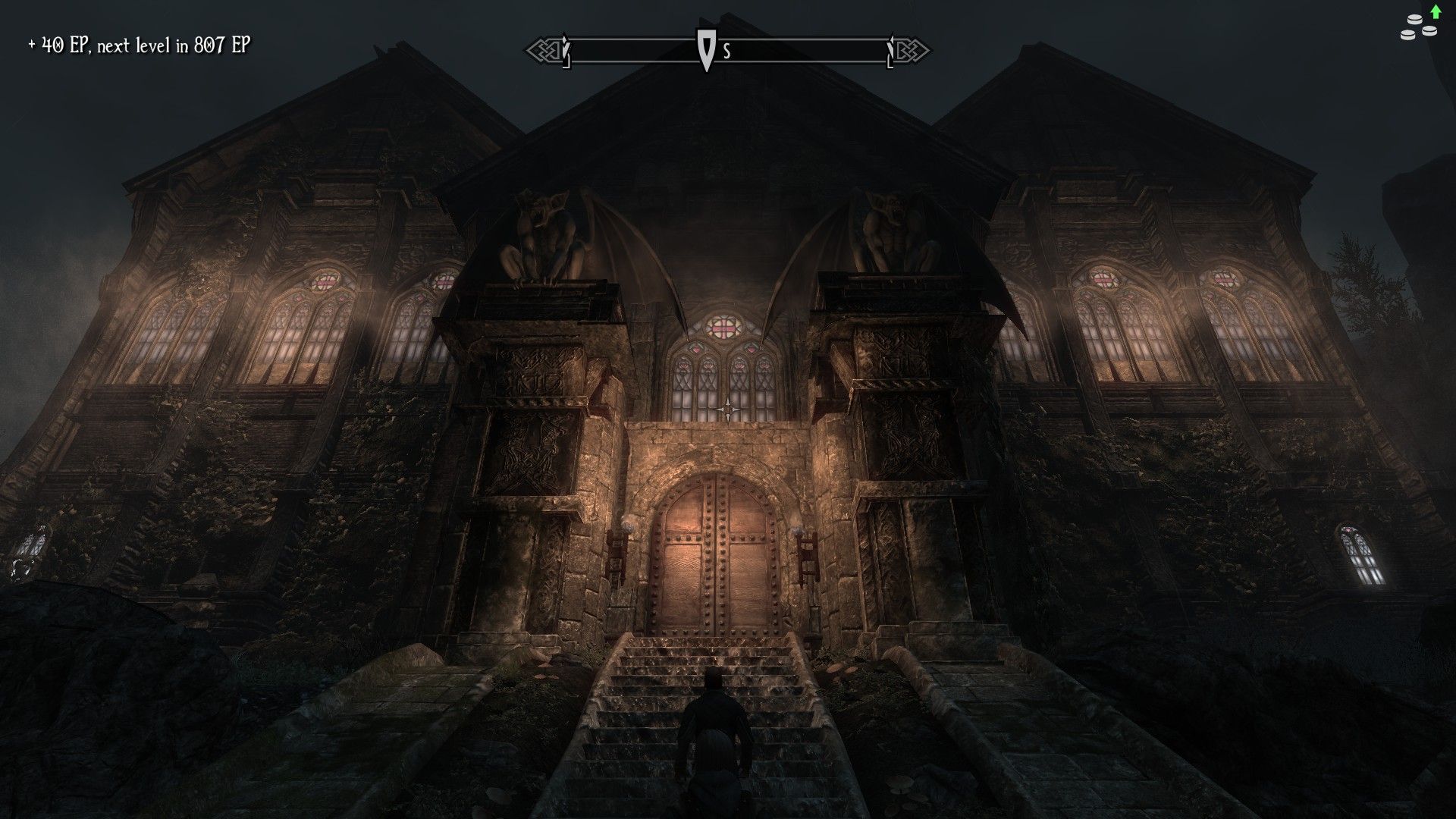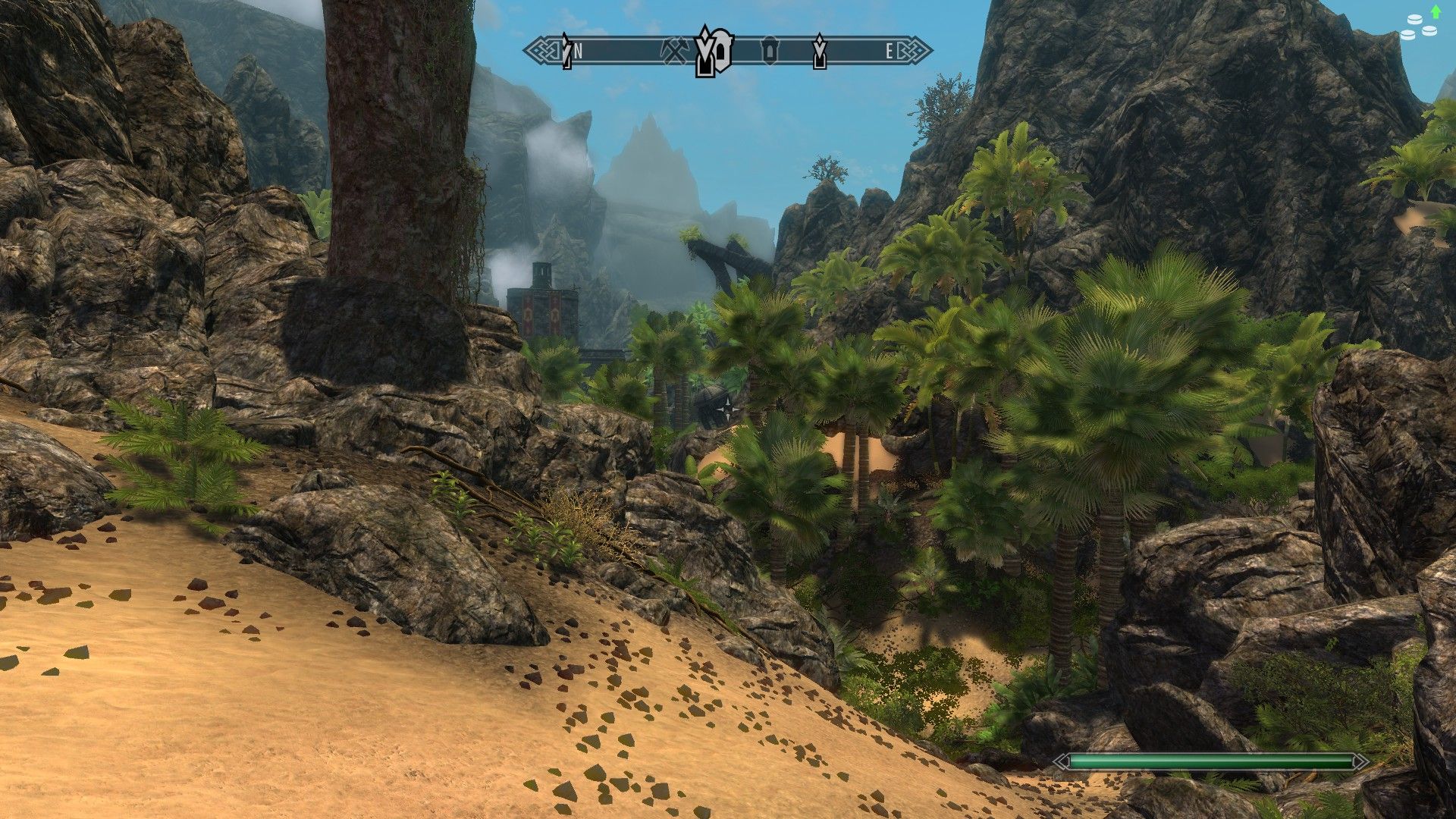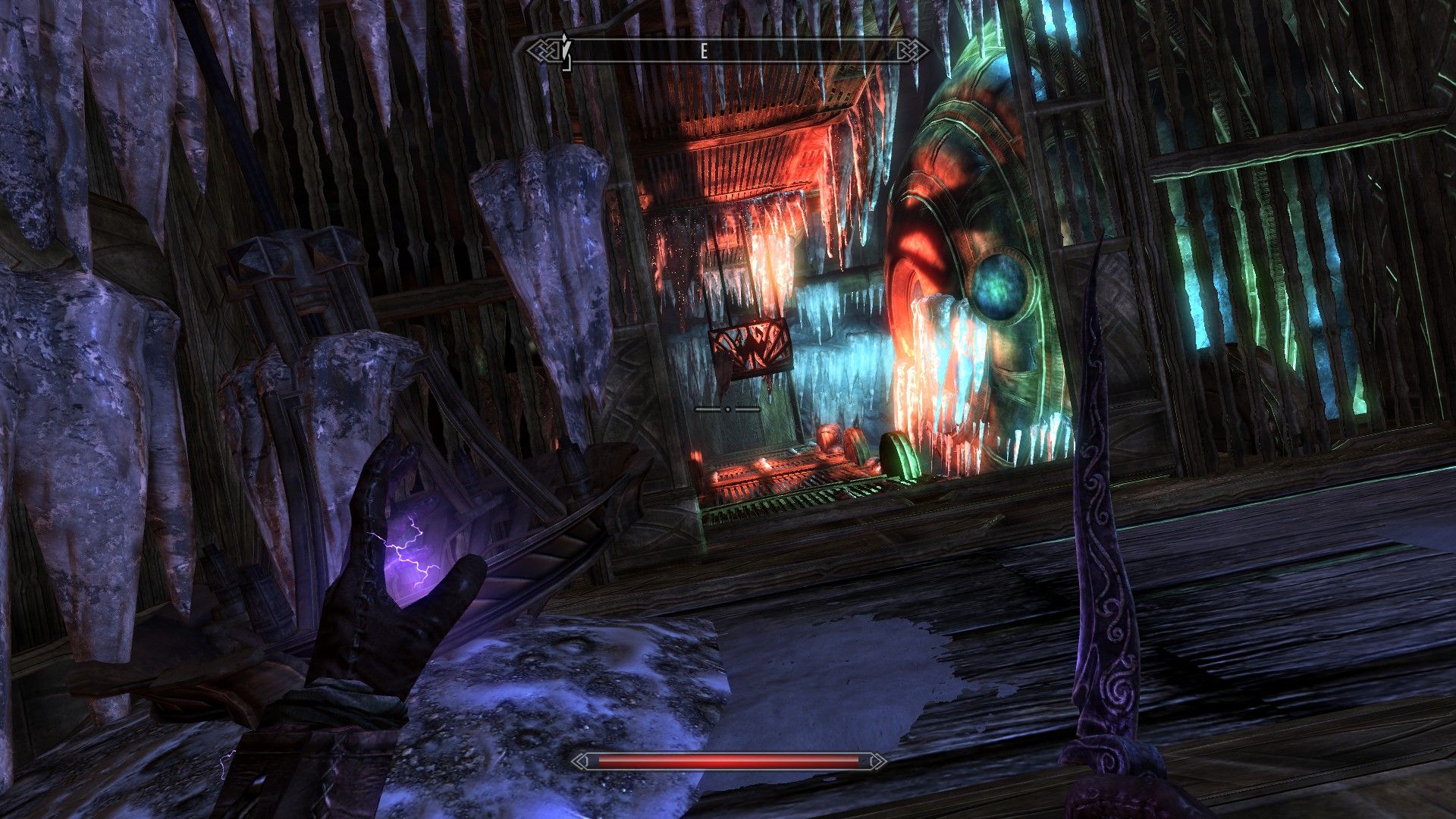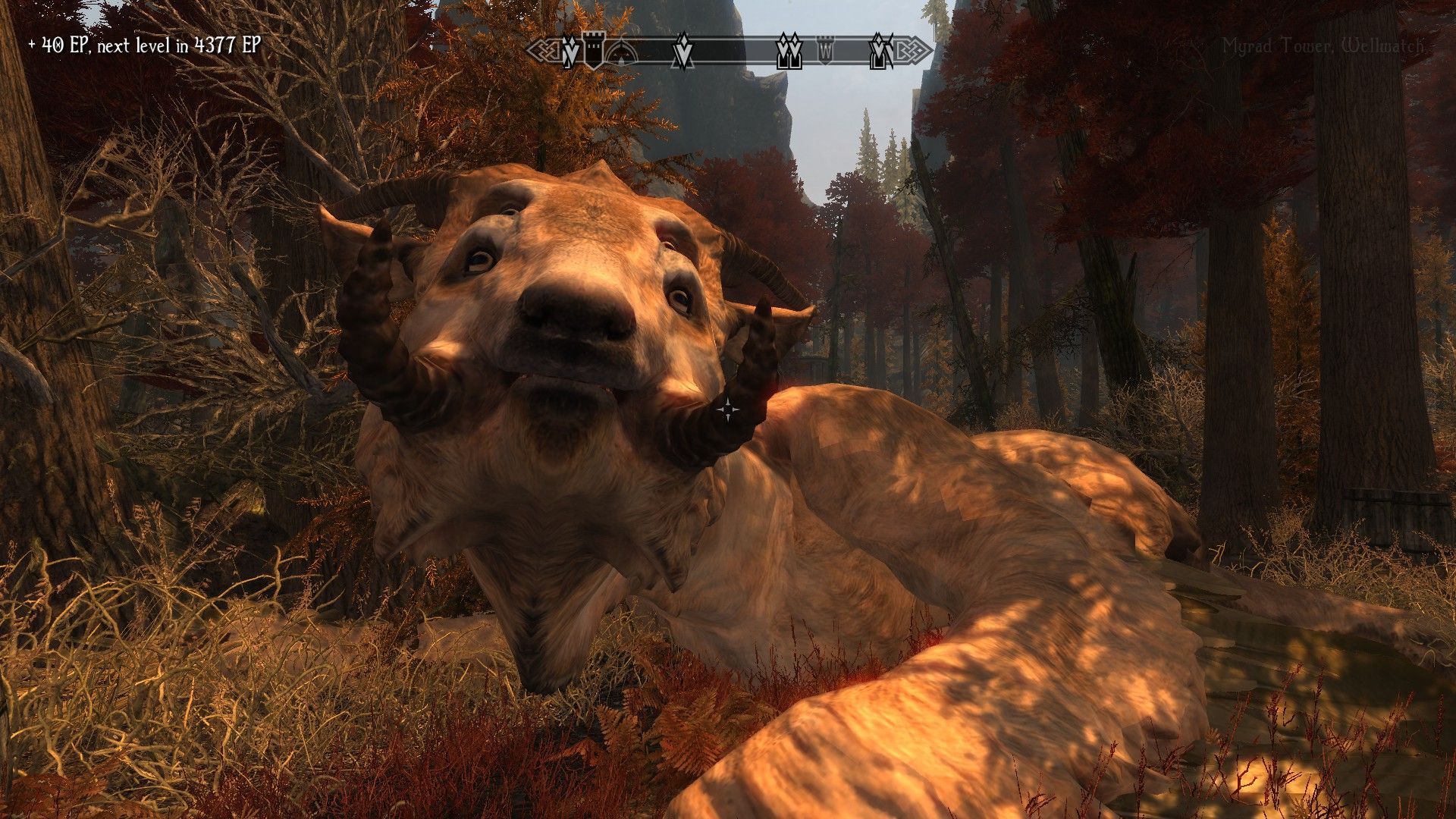Enderal: Forgotten Stories is a total conversion mod for The Elder Scrolls V: Skyrim. Developed by a dedicated team of German modders by the name of SureAI, the first version of Enderal was released back in 2016. The updated Forgotten Stories expansion from 2019 saw a number of additions to quests and content, as well as a standalone release on Steam. It's the definitive and complete version of the tale, and is worth playing again if you've only dabbled in the original previously.
This mod completely replaces the landmass and setting of Skyrim with an original one, and overhauls most of the gameplay systems as well. Skyrim’s general DNA is still inevitably present in movement and systems, but the way it works is wholly redone. It is less the freeform “do whatever you want” simulator that Skyrim quickly becomes; Enderal is instead a focused, story-driven RPG with a splash of open-world content that better utilizes the space. There’s less reliance on scaling enemies, and more on not reaching into areas beyond your means, as the story will nudge you there when you’re ready.
That story, world, the characters contained within, and the full span of Enderal’s adventure? Those are so fantastically realized that it feels disingenuous to call Enderal a mere mod. It easily transcends the boundaries of Skyrim, overcoming many of the gameplay issues and lacking elements of its source material. Having finished it recently, I now find myself thinking of Enderal not as just a Skyrim mod, nor even its own standalone game and RPG.
I now think of Enderal: Forgotten Stories as one of the best video games I’ve ever played.
Since Enderal hasn’t left my mind for long since completing it, I feel that it’s important to I write this down and share it. I want to talk a bit about Enderal’s design and gameplay systems. I’ll cover a little about the story and characters (in non-spoiler terms), as well as how emotionally devastating its ending is. And finally, I’ll briefly touch on the many ways it shines a light on all of Skyrim’s greatest weaknesses. I’ve come to develop a more negative view of Bethesda’s most recent mainline Elder Scrolls foray, and Enderal has helped me put all of that into words.
In the interim, I urge you to go and check out Enderal: Forgotten Stories at your earliest convenience if any of this has sounded slightly appealing to you. It’s comprehensive enough to have its own standalone Steam page and installer, with many Skyrim mods that are considered “mandatory” baked into it already. In fact, it's comprehensive enough to have its own mods also! Go there now, pick it up, and see for yourself. This is something special, and the SureAI team deserves the attention and spotlight.
Skyrim: New Vegas
Enderal takes absolutely no time in laying its cards on the table for you. The opening scene is a gorgeous, sun-baked vista of a lush garden near sunset. It’s idyllic, pushing the graphics of both the base game and the included ENBoost and graphical mods to the max. It’s also very clearly wrong, with something uncanny about the whole scene lurking just below the surface. A quick glance around the place will see that uncertainty grow, with the culmination of that scene making it crystal clear. I won’t spoil specifics; once again, I urge you to check it out, and the introduction alone should demonstrate that you’re in for a ride.
More cutscenes and important setup will follow, including character creation. The first area or two play out like a tutorial, helpful both for newcomers and those familiar with the workings of Skyrim. All throughout, the placing of story elements and themes has begun, and seeing that all eventually culminate more than makes up for its “slow” start. More importantly, you’ll get through the first scripted dungeon and be greeted by a sun-swept vista not unlike the one from the intro. This game is utterly gorgeous. The continent of Enderal beckons forth.
Mechanically, the game might be a little bit off-putting for Skyrim veterans. That’s not to say it isn’t good; Enderal simply does away with the learn-by-doing skill system for something more focused. Killing creatures and completing quests give experience, and experience thresholds grant you a level-up. You’ll choose health, magicka, or stamina and get a selection of points with which to invest into specific skills. You can’t just plug these points straight into your skills, though.
[pullquote]"It feels disingenuous to call Enderal a mere mod."[/pullquote]
Memory points are your big talent/perk purchases, which are applied through a much fancier in-game version of the Skyrim perks. It’s not just opening a menu and clicking a constellation: here, you meditate to reach a bizarre shrine in your mind, where physical stones reflecting the perk trees are represented to interact with. In addition to the passive powers here, you’ll unlock talents which function like dragon Shouts. These have individual cooldowns rather than global ones though, so mixing and matching them in combat is far more useful than Skyrim's counterparts.
For general skill levels, you need to acquire and study a learning book of the appropriate skill and quality. Doing so increases that skill by 1. Want to get One-Handed from 15 to 16? You'll have to scavenge or buy a One-Handed learning book of the apprentice difficulty. To get beyond 25, you'll need an adept book, and so on. Skills have been split between learning and crafting, with the latter being less directly tied into combat trees (Alchemy, Enchanting, Lockpicking and such).
This means that you cannot master everything in a single playthrough like you might in Skyrim. Builds become important, and swapping to a new combat style on a whim requires some investment. This would probably not go down well in Skyrim; open exploration carries that game, and diversity in one’s playstyle can alleviate a sense of repetition after long sessions. Enderal wants you to think about your build and develop a roleplay attachment to your avatar, instead. As you’ll see from the heavier story focus, that becomes increasingly clear as you play.
Experience also becomes a premium resource. Enderal isn’t as large as Skyrim, but it’s far more curated. Leveled lists and scaling rewards are barely a factor here, and bandits won’t suddenly find late-game armor. Completing side quests and exploring where you can now helps you progress your build. Given that the game can be pretty difficult in the early hours, that’s a good mindset to embrace. Exploring is a good idea, right up until you cross a boundary you probably shouldn’t have and get completely murdered.
[pullquote]"Enderal feels to Skyrim as Fallout: New Vegas did to Fallout 3."[/pullquote]
There's further incentives for exploring carefully as well, with rare pickups that can grant bonus experience or even permanently increase your carry capacity. Set items now exist and are quite powerful when combined, and rare crafting schematics or learning books are scattered across the land. The fact that everything feels hand-designed instead of just generated en masse helps the world seem more real. Thus, when the plight of the story starts to ramp up and affect the continent I'd grown attached to, I felt it all the more from seeing it myself.
Still, even with all the benefits for exploring, Enderal is a comparatively more linear game than its source. Modern Elder Scrolls games are happy to let you wander off the beaten path for a hundred hours and ignore the main story entirely. That’s not at all encouraged for Enderal; in fact, unlike Skyrim, you are seriously missing out if you don’t engage with the main quest. Major biomes of Enderal’s landmass are gated off by the challenge they represent. You can go there and try to survive, but generally the main story will introduce you to it once you’ve progressed far enough to be ready.
In this way, Enderal feels to Skyrim as Fallout: New Vegas did to Fallout 3. Obsidian’s Fallout foray was more linear and focused than its predecessor's open-world jaunt around post-apocalyptic Washington, D.C.; wandering too far would get you torn apart by Deathclaws. This lack of freedom was exchanged for much sharper writing, a better plot, and more narrative options and choice. Enderal feels as if it’s done much the same to Skyrim, and given how fantastic the story and characters are, it’s a trade I’d make a million times over.
The Adventures of Jespar (featuring the Player Character)
Leaving the tutorial dungeon brings you to a secluded valley within Enderal proper. There’s a few treasures and hidden secrets to be found there, but eventually you will have to follow the path that leads beyond. That one path will see you encounter a couple of apothecary NPCs, who explain a little more about the world you’re in.
Attempting to leave will see you overcome with Arcane Fever; this is both a story point, and one of Enderal’s new gameplay mechanics. It functions similarly to Fallout’s radiation, increasing when exposed to magically dense areas. Most importantly, Arcane Fever is exacerbated by using magical healing and potions. No longer can you just open your inventory and chug twenty potions to heal up, as this'll quickly raise your Fever. Get too high and you’ll start having negative side effects, and at 100% you die outright. Food items don't heal much in combat either, but out of combat? You'll get a satiated buff that will regenerate your health over time, so you still want to stay fed. It’s a clever little way of balancing Enderal’s combat and making it less absurd than Skyrim.
Nonetheless, you find out about this system shortly after the apothecary conversation ends. It’s here that you’ll meet Jespar Dal’Varek, one of the major NPCs of the game. He leads you into the main story quest for Enderal, but he'll also take the time to chat you with if you want to ask questions. By the end of that first segment of the game, I was ready to follow him anywhere. Jespar is one of the more well-written and constructed NPC companions I’ve had the pleasure of encountering in video games. He’s a very easy-going sort and it’s clear why they introduce you to him first, but the cynical and anti-idealist side of him comes to the fore if you start asking.
In fact, there will be side quests and conversations entirely focused on getting to know some of the side characters better. These were usually highlights in my playthrough, which should give you an indication of the quality of these characters. In Jespar’s case, this is further strengthened by such fantastic voice acting that you’d almost forget this was a free mod. In fact, his voice actor Ben Britton has springboarded into the industry off his work here. Small wonder that Jespar is the focus character in the writer's spin-off novel (the audiobook is also voiced by Ben).
[pullquote]"By the end of that first segment of the game, I was ready to follow Jespar anywhere."[/pullquote]
Jespar might be the first and most prominent, but he is far from the only character worth remembering in Enderal. Throughout the main quest lines, you’ll be introduced to a slew of primary characters, many of which have just as much depth as him. The interactions of these characters both with you and each other really sell the narrative being told, and it was very easy to grow attached to them (or to loathe them, as the situation demands).
I cannot stress how strong the writing for Enderal truly is. It’s not just the characters either; the entire game world is incredibly well designed and presented. The continent is built on a religious caste-based society with heavy stratification, and you’ll have the opportunity to investigate and interact with each level of it. You’ll argue the pros and cons of religiosity, discuss the nature of life, death and reality, or dive into a magic system which literally plucks aspects from alternate timelines in order to function. Whether through its world-building, characters, or overall narrative, I found myself hopelessly drawn in by Enderal and wanted more.
All throughout, the main quest runs through the bulk of the continent and takes you to appropriately leveled zones when the time comes. Each arc of the quest finds new ways to introduce spectacle, to develop the characters, and to ramp up the stakes and scope of the plot. There’s sections that are presented with better tension and horror than most horror games can manage. New difficulties will arise, characters will be hurt or even killed, and victories will be tempered with losses. Before I knew it, I'd been playing for over a hundred hours and had fully cleared the map; that's something I'd never care to bother with in Skyrim.
Very quickly, you’ll realize just how big the implications of the story are, and this will continue without letting up until the conclusion of the game. And that conclusion is something else. There’s a sense of uncertainty and tension throughout the entire story, and neither the characters nor the player are ever quite sure that what they’re doing is the correct answer. Like everything else, this will build up to a finale that was so brilliantly handled and emotionally charged that I was reeling for days afterwards.
Finding the right words to describe it all without delving into spoilers is a difficult task. Much as I’d love to do so and start gushing in fantastic detail, that's not the point of this editorial. Besides, it’s really something that I would rather people experience firsthand. Suffice it to say that Enderal’s writing and story is excellent, with quality that holds true until the very end. I expect that I’ll be thinking of some of the climactic moments for a long time to come. It really is that fantastic a tale.
[pullquote]"This will build up to a finale that was so brilliantly handled and emotionally charged that I was reeling for days afterwards."[/pullquote]
I have to take a moment to credit the sound, also. Enderal: Forgotten Stories might be a free mod, but it has an excellent and fully original soundtrack composed by Marvin Kopp. It's so strong that I've been using it as background music while writing this piece, and will probably do so for future writing sessions. It also is fully voice acted, with absolutely fantastic voice direction. Not every actor is as professional as another, and there’s a couple of outliers that really hurt to listen to in the cities and side quests. But the primary cast deliver some fantastic performances, and most seem to have at least one scene that catapulted them from good to exceptional. All of the sound really helps carry the narrative that much further into greatness.
It’s not without flaw, of course. The pacing is generally good, but there is one quest near the end of the game that comes across as quite rushed. An important detail for the plot is revealed, and then immediately an NPC blurts ahead three steps in rapid succession. It was such a sudden guess about what was happening that it felt like random speculation, yet it was completely accurate. I suspect this was to get things in position for the finale without compromising that sequence, so it’s forgivable. Even so, the good far outweighs what little bad I could muster. Enderal is a story worth experiencing, and I’m genuinely glad I did so.
The Post-Enderal Lens on Elder Scrolls
It’s probably quite obvious at this point, so let’s address the elephant in the room: I don’t particularly like Skyrim.
That statement is usually enough to tank a game writer’s credibility given its reputation and scores, but hear me out. It wasn't a case where I hated the game on purpose and refused to touch it from there. Skyrim took up a good hundred hours of my time, and even more once mods (besides Enderal) entered the scene. I completed the main quest and all the major faction quests, played through the DLC, and tried numerous different builds. There was a fun enough experience to be had, but I won’t lie and say I didn’t enjoy my time with it.
The problems that I have with Skyrim emerged only after time and reflection. My first Elder Scrolls game was Morrowind, and it is still possibly my absolute favorite game ever. Skyrim was unlikely to live up to that completely, but it still falls short in almost every metric. I replayed Morrowind in full a few months ago, and I only came away from that slow, ancient game loving it even more than previously. Nostalgia is not what pushes that game ahead of its follow ups in my eyes: it’s the richly detailed and exotic world, the flexible design, and the many guilds and factions to dive into that make Morrowind so strong. We will probably never get another game quite like it.
When I think back to Skyrim, I don’t think of any of that. I think of going off on random adventures and losing myself in the wilderness for a few hours. I’ll accumulate gear, get stronger, tick off increasingly more quest markers from my list, and just continue going through the motions. Bethesda's approach nowadays seems less about making high quality content, and instead making more content. Whenever Skyrim has the opportunity to provide depth or meaning, it comes away lacking. The gameplay is more action than RPG when compared to its predecessors, but the mechanics are lackluster and simplistic.
Most don't even seem to bother with Skyrim's main quest, though I pushed through and completed it. Still, barely any aspect of it really stands out in my mind or impressed me. By contrast, the main questline in Morrowind is the highlight; so too is the main quest line in Enderal. So many moments of Skyrim that could’ve been something more end up feeling like yet another item crossed off the list. I could go back now and still probably play it for tens of hours if I wanted, and I’d probably enjoy it. But if I wanted depth, I’d only find an ocean-sized puddle. For all its vaunted freedom to play it as you want, that's all Skyrim can ever offer you, no matter what else you might desire from it.
Enderal: Forgotten Stories felt incredibly refreshing to me as a result. It took all the potential of Skyrim’s size, condensed it into a large but focused story, amped up the presentation and mechanics, and proceeded to deliver one of the best experiences I’ve had from any RPG I've played. If ever there was a game that nearly elicited the same sense of wonder I got from Morrowind, it would be Enderal, not Skyrim.
Morrowind isn’t the only titan of RPGs I’ve had the pleasure of playing recently, either. In the last year, I’ve sought to play or replay many of the titans of PC RPGs. I grew up with the likes of Baldur's Gate 2 and Planescape: Torment, and I revisited them recently with fondness. Contemporary RPGs like NieR: Automata, The Witcher 3, and even Final Fantasy 14: Shadowbringers all have stirred strong responses in me. Yet even amongst all these heavy hitters, Enderal left such an imprint on me that it absolutely deserves to be discussed and compared alongside them.
[pullquote]"If ever there was a game that nearly elicited the same sense of wonder I got from Morrowind, it would be Enderal, not Skyrim."[/pullquote]
The Elder Scrolls 6 is a long ways off, and the last few showings of Bethesda’s games have been less than spectacular. I have no real anticipation for what’s to come from them. When you consider what a German modding team managed to make with that framework and deliver it for free, it just cements that feeling all the more. Instead of looking to that distant horizon, I'm instead prepping to go back and visit SureAI's earlier works. Enderal isn't their first game; they made a similar mod for Oblivion called Nehrim, set in the same world and apparently of equal quality. Nehrim is getting its own stand-alone Steam release in June, and there is no game I'm looking forward to more than it right now.
If you happen to like RPGs, I heartily urge you to go check out Enderal: Forgotten Stories. Regardless of whether or not you think highly of Skyrim, there’s a really incredible experience here that is a worthy game in its own right. You don’t even need to install Skyrim to run it, just own it. Even if you have to buy the unlisted original edition of Skyrim to play, since it doesn’t run on the Special Edition, you should still consider it. Believe me when I say that it’s worth it.

